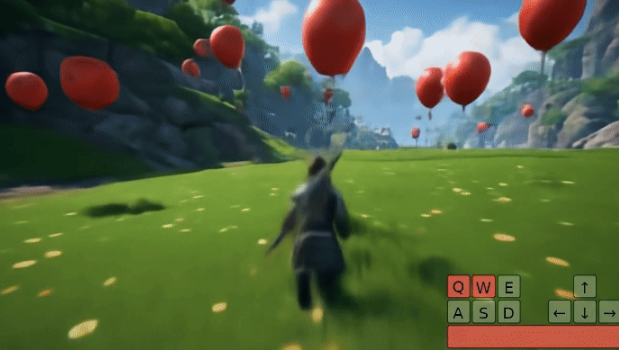 AI
AI
 AI
AI
 AI
AI
Google LLC’s DeepMind is trying to put together a team of specialist artificial intelligence researchers to expand its leadership in the field of “world models” that can simulate physical environments.
DeepMind’s new team will be led by former OpenAI researcher Tim Brooks, who joined the company in October. He announced the new team via a post on X, first picked up by TechCrunch.
DeepMind has ambitious plans to make massive generative models that simulate the world. I’m hiring for a new team with this mission. Come build with us!https://t.co/pqvALtAvLs https://t.co/vtwgeXl9Dl
— Tim Brooks (@_tim_brooks) January 6, 2025
Brooks, who previously led the development of OpenAI’s video generation model Sora, linked to a number of job listings in his tweet, and they reveal that his new team will collaborate with experts who led the development of Google’s Gemini, Veo and Genie models.
Gemini is Google’s best known large language model for generating text and analyzing images, rivaling OpenAI’s GPT-4o, while Veo is a video-generation model similar to Sora. Genie is not so well-known. It’s what’s known in AI circles as a “world model” that can create and simulate playable 3D worlds in real time based on text prompts.
DeepMind announced Genie last month, saying it can simulate virtual worlds along with realistic animations and physics, and also support interactions between all of those elements. Users can prompt Genie with text, an image or a combination of the two. DeepMind showed various example worlds created using Genie, including a sailing simulation, a cyberpunk Western and others.
Brook’s job listings suggest that his new team at DeepMind will tackle “critical new problems” while trying to scale AI models to “the highest levels of compute.” It will work to create “real-time interactive generation” tools based on the models it creates, and also study how to integrate those models with existing LLMs like Gemini.
In one of the job descriptions, DeepMind states that world models are key to building artificial general intelligence or AGI, which refers to AI systems that can perform any task that a human could. “World models will power numerous domains, such as visual reasoning and simulation, planning for embodied agents, and real-time interactive entertainment,” the listing notes.
DeepMind’s Genie puts the company at the forefront of world model development, but it faces a number of competitors in this area, such as World Labs Technologies Inc., a startup created by the renowned AI researcher Fei-Fei Lee, as well Odyssey Systems Inc. and Decart.AI Inc.
One of the most obvious use cases of world models is the creation of interactive media that could be used in the making of movies and video games. Alternatively, they can be used as the basis of realistic training environments for robots and other AI systems.
Holger Mueller of Constellation Research Inc. said the fact that Google is prepared to make a significant investment in world models suggests that the technology is finally ready for prime time, almost two decades after it was first conceived with the release of the popular game, Second Life.
“In Second Life, advertising was one of the main use cases of the software, and Google as a major advertising player will certainly want to look at this kind of application,” Mueller said. “However, real world models can unlock much more than this, with other use cases including simulation, planning and analysis, as well as the metaverse, if anyone remembers that.”
World model technology has raised some concerns from creative workers, though. A 2024 study by the Animation Guild, which is a union that represents animators and cartoonists in Hollywood, estimates that AI has the potential to disrupt more than 100,000 U.S.-based film, TV and animation jobs within the next two years.
Another concern pertains to copyright. Many of the world models created by Genie and its rivals look and feel a lot like those found in video games such as “Grand Theft Auto” and “Fortnite,” which suggests they may have been trained on video game walkthroughs posted online, or even the games themselves. That could lead to legal problems for world model developers down the road.
THANK YOU